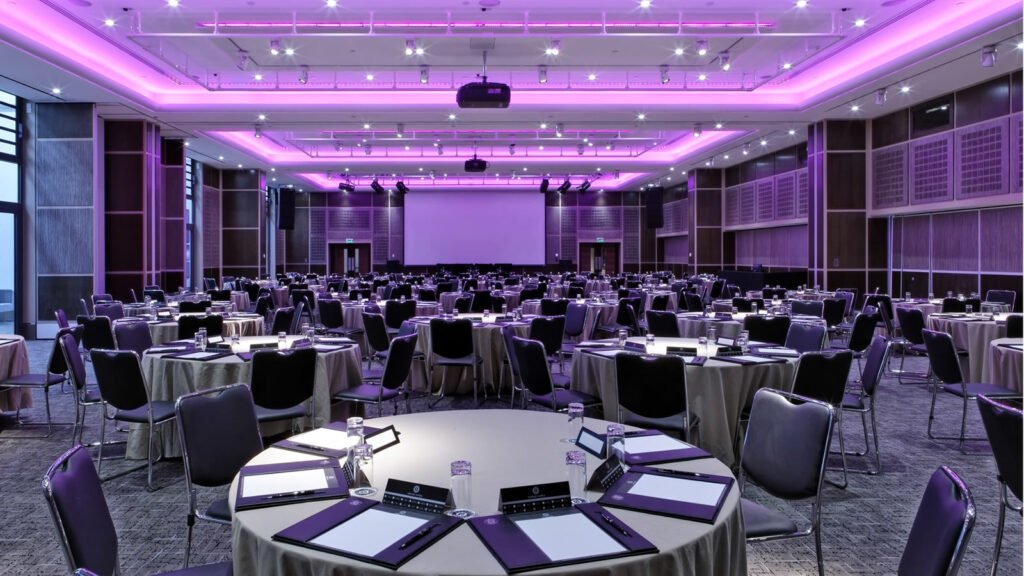Jun 25, 2024
How to Book a Hotel for Events
Booking a hotel for events requires careful planning and consideration to ensure everything runs smoothly. Whether it’s a conference, wedding, or corporate meeting, finding the right hotel can make all the difference. Here are some tips on how to book a hotel for events, ensuring your occasion is a success.
Determine Your Event Needs
The first step to book a hotel for events is to determine your specific needs. Consider the type of event you’re planning, the number of attendees, and the required amenities. Are you hosting a small business meeting or a large wedding reception? Knowing the size and scope of your event will help you narrow down your options and find a hotel that meets all your requirements.
Research Potential Hotels
Once you’ve defined your needs, start researching potential hotels. Look for hotels that specialize in hosting events similar to yours. Check their websites, read reviews, and ask for recommendations from friends or colleagues. Pay attention to the hotel’s location, accessibility, and the variety of event spaces they offer. A hotel with a good reputation and positive reviews can provide peace of mind that your event will be well-managed.

Visit the Hotel in Person
Before you book a hotel for events, it’s essential to visit the property in person. This allows you to inspect the event spaces, guest rooms, and amenities firsthand. During your visit, meet with the hotel’s event coordinator to discuss your plans in detail. Ask about room capacities, layout options, and any special services they offer. A personal visit ensures there are no surprises and helps you visualize how your event will unfold.
Evaluate the Hotel’s Event Services
When planning to book a hotel for events, evaluate the hotel’s event services thoroughly. Many hotels offer comprehensive event packages that include catering, audiovisual equipment, and event planning assistance. Determine if the hotel provides on-site support staff to assist with setup and coordination. Additionally, inquire about their catering options, as food and beverage services can significantly impact the success of your event.
Negotiate the Contract
After selecting the ideal hotel, it’s time to negotiate the contract. Discuss pricing, payment terms, and cancellation policies with the hotel management. Ensure the contract clearly outlines all costs, including any additional fees for services such as parking, Wi-Fi, or equipment rental. Negotiate for favorable terms that align with your budget and event needs. Don’t hesitate to ask for discounts or complimentary services, especially if you’re booking a large event.
Secure Accommodations for Attendees
When you book a hotel for events, securing accommodations for your attendees is crucial. Reserve a block of rooms at a discounted rate to ensure your guests have a convenient place to stay. Provide information about the room block to your attendees and set a deadline for reservations. Coordinating accommodations can enhance the overall experience for your guests and simplify logistics.
Plan the Event Logistics
Effective logistics planning is key to a successful event. Work closely with the hotel’s event coordinator to plan every detail, from the layout of the event space to the schedule of activities. Discuss setup and teardown times, and ensure all necessary equipment is available and functioning. Clear communication with the hotel staff helps avoid any last-minute issues and ensures the event runs smoothly.
Promote Your Event
Promoting your event is an essential step to ensure high attendance. Use multiple channels to spread the word, including social media, email newsletters, and traditional advertising. Provide clear information about the event location, schedule, and registration process. Highlight the benefits of attending and any special features, such as keynote speakers or networking opportunities, to attract your target audience.
Prepare for Contingencies
No matter how well you plan, unexpected issues can arise. Prepare for contingencies by discussing potential problems with the hotel staff and having backup plans in place. This might include alternative setups for bad weather or additional staffing for larger-than-expected crowds. Being prepared helps you stay calm and handle any challenges that may come up during the event.
Follow Up After the Event
Once your event is over, follow up with the hotel to discuss what went well and any areas for improvement. Provide feedback on the event services and overall experience. This information is valuable for the hotel and can help them improve their offerings. Additionally, thank the hotel staff for their support and professionalism, which can foster a positive relationship for future events.
Conclusion
In conclusion, booking a hotel for events involves careful planning, thorough research, and clear communication. By determining your needs, researching potential hotels, visiting the property, evaluating services, negotiating the contract, securing accommodations, planning logistics, promoting the event, preparing for contingencies, and following up, you can ensure a successful and memorable event. Taking these steps will help you book a hotel for events with confidence and achieve your desired outcomes.

Hey there! Been using 91damanlogin for a bit and gotta say, it’s pretty decent. Sign-up was smooth, and I haven’t had any major issues. Could use a bit of a UI refresh, but overall, a solid experience. Check it out here: 91damanlogin